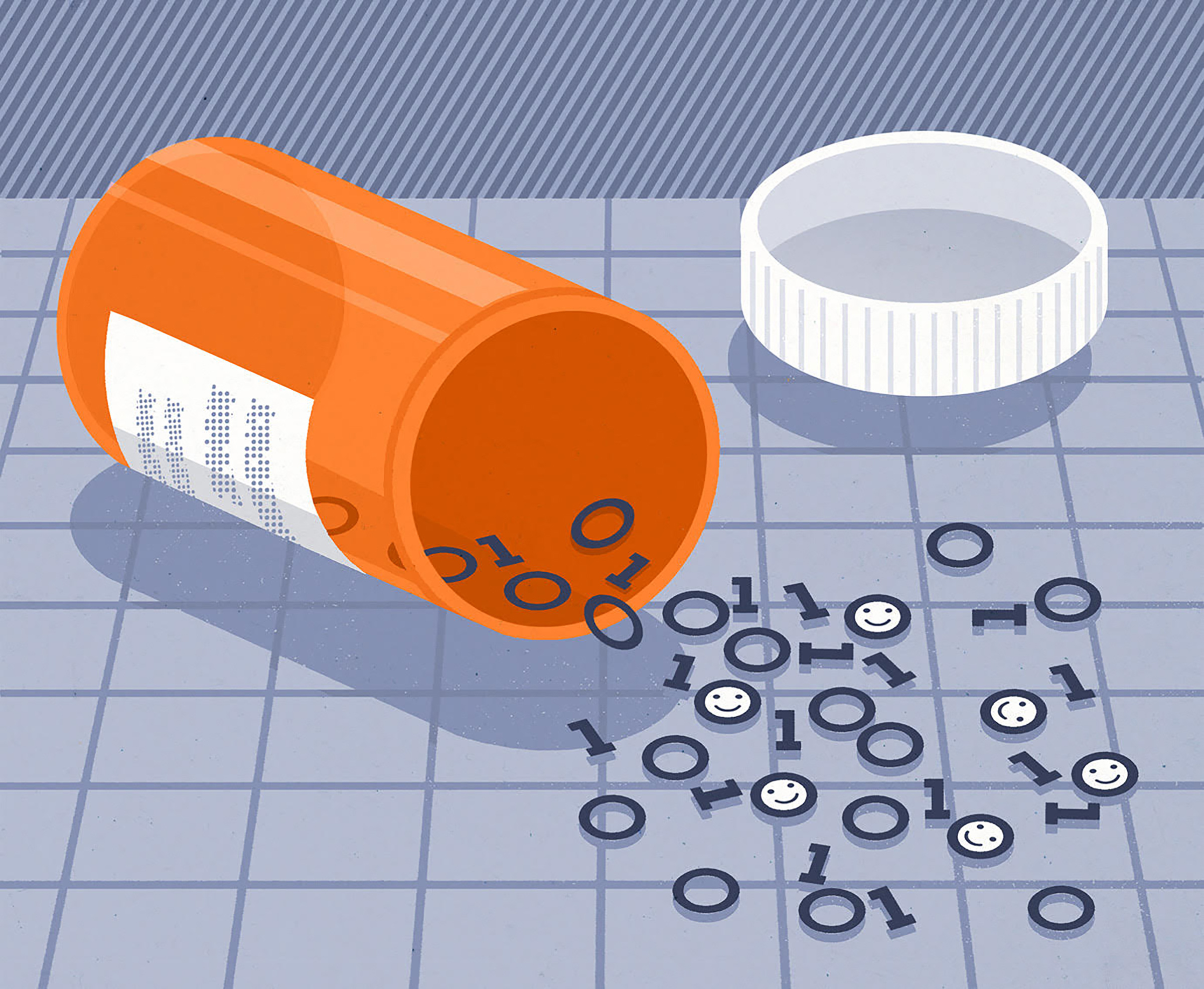
Seeking out help for depression is hard enough. It doesn’t make things any easier that it can take weeks, months or longer of trying different treatments to find something that works. Doctors typically start patients on antidepressants, but they take at least four weeks to start working, and research has shown that only about 30% respond well to the first drug they’re prescribed. “Right now, treatment selection is purely based on trial and error,” says Dr. Madhukar Trivedi, a professor of psychiatry at the University of Texas Southwestern Medical Center.
But promising new research published in February in Nature Biotechnology suggests that a simple brain test, paired with insights from artificial intelligence (AI), can predict whether an antidepressant will work on a given patient. Trivedi and a team of researchers took data from a previous study in which more than 200 people with depression had an electroencephalogram (EEG)—a non-invasive test that records a person’s brain waves through electrodes placed on their scalp—and were then given either sertraline (a widely prescribed antidepressant marketed as Zoloft) or a placebo for eight weeks. If those who responded well to sertraline shared a common brain-wave pattern, that might provide a big clue for whether or not any individual will respond to the drug.
Trivedi and the team created a machine learning algorithm designed to analyze the EEG data, and it found that 65% of the study participants with a particular brainwave signature also showed a strong response to sertraline. This, says Dr. Amit Etkin, one of the paper’s authors and a professor of psychiatry and behavioral sciences at Stanford University, is “far better” than using clinical factors, like whether patients have certain kinds of symptoms, to try to guess whether they will respond well to a drug.
The researchers also applied their AI algorithm to data from a separate study in which people had EEG testing before undergoing transcranial magnetic stimulation (TMS), a brain-stimulation technique to treat depression. They found that people who were not expected to respond well to sertraline, based on their brain waves, tended to have positive responses to TMS.
All of this research is still preliminary. But the use of AI in psychiatry is expanding quickly. AI is powering a broad range of applications in use or in development to diagnose or treat mental illness; therapy apps and chatbots use machine learning to tailor advice to users, for example, and a study in 2018 used AI to analyze the words people post on Facebook and found that an algorithm could pretty accurately predict whether a person gets a depression diagnosis later on. Computer analysis of EEG data is also growing. Researchers have recently used algorithms to mine EEG data of infants and were able to predict autism diagnoses in children just a few months old.
“These are exciting results,” says Michele Ferrante, computational-psychiatry program director at the National Institute of Mental Health (which funded the team’s research). “This EEG lab test is quick”—it takes just a few minutes—”cost-effective, and its outcome is of high-clinical impact.” The next step is to conduct clinical trials in which AI suggests a treatment based on the patient’s EEG patterns “to see if these results hold true.” Etkin believes that in about five years, his team’s prediction tool will be ready for clinical usage.
As a more personalized approach to depression emerges, thanks to AI, Trivedi hopes that people will be more inclined to seek treatment and stick with it. “It gives patients a lot more confidence in the treatments that they are being provided,” he says. “That improves their ability to stay with that treatment until they get better. We are not shooting in the dark.”
More Must-Reads From TIME
- The 100 Most Influential People of 2024
- How Far Trump Would Go
- Scenes From Pro-Palestinian Encampments Across U.S. Universities
- Saving Seconds Is Better Than Hours
- Why Your Breakfast Should Start with a Vegetable
- 6 Compliments That Land Every Time
- Welcome to the Golden Age of Ryan Gosling
- Want Weekly Recs on What to Watch, Read, and More? Sign Up for Worth Your Time
Write to Mandy Oaklander at mandy.oaklander@time.com